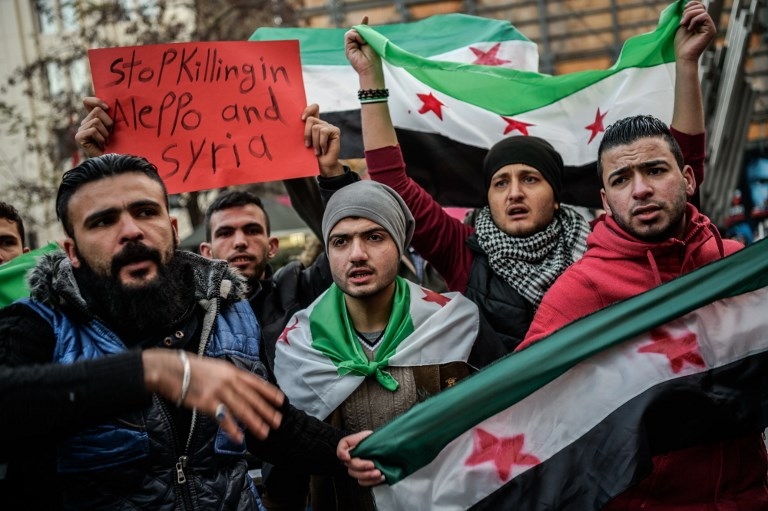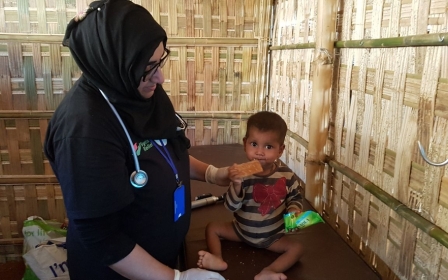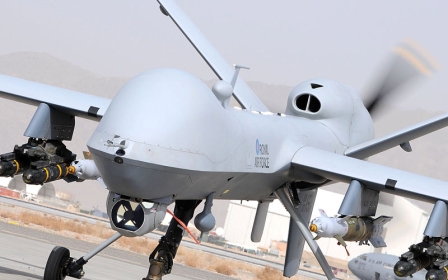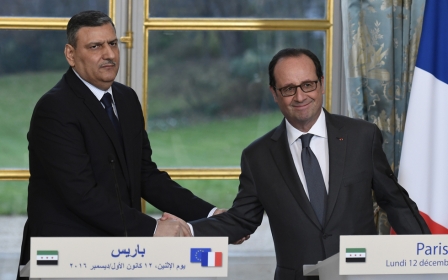Syria opposition meets in Riyadh under pressure to compromise

Syrian opposition figures will gather in Saudi Arabia on Wednesday to form an overhauled delegation to peace talks that analysts expect will be more willing to compromise on key demands.
The meeting comes as Turkey, Iran, and Russia hold top-level talks in the Black Sea resort city Sochi, pressing their diplomatic dash to resolve Syria's six-year conflict.
Multiple rounds of talks hosted by the UN have failed to bring an end to the war, which has killed more than 330,000 people and forced millions from their homes.
Factions opposed to President Bashar al-Assad have been plagued by divisions throughout the maelstrom, but Wednesday's Riyadh summit will aim to bridge the gaps.
Around 140 opposition members from a wide range of platforms will gather for three days of talks at the invitation of the Saudi foreign ministry.
Among them are members of the Istanbul-based National Coalition, independent figures, and members of the Cairo and Moscow groups, who are seen as more favourable to the government.
Attendees will "form a single negotiating delegation" to UN-led peace talks, Hadi al-Bahra, a member of the National Coalition's politburo, told AFP from Riyadh.
"The goal is to activate the stalled Geneva political process," said Bahra.
The United Nations has called for talks in the Swiss city on 28 November.
Forming 'the right opposition'
But two days before the Riyadh meeting, several key figures from the mainstream opposition High Negotiations Committee - including its head Riad Hijab - stepped down.
Hijab did not specify why he was resigning, but said he had faced "attempts to lower the ceiling of the revolution and prolong the regime of Bashar al-Assad."
Other prominent figures including Suhair al-Atassi, Salem al-Muslet, and Abdul Hakim Bashar also announced they were withdrawing from the HNC.
Russian Foreign Minister Sergei Lavrov said he expected "the retreating of radical opposition leaders... to help the Syria-based and foreign-based opposition unite on a constructive basis."
The overhaul, experts and oppositionists said, will pave the way for a new negotiating delegation that could water down the opposition's traditional demands, including Assad's immediate ouster.
His fate has been one of the chief obstacles to progress in peace talks, with the opposition demanding he step down at the start of any transition.
"Riyadh is going to come out with a group, an agreement, on the opposition's proposal for the constitution and for parliamentary elections," said Randa Slim of the Middle East Institute think-thank.
"Gone is any kind of emphasis on political transition or on Assad."
The product of the Riyadh meeting would be "the right opposition that will agree to sign off on the deal that's going to be negotiated," she said.
"The train is moving in that direction. It has left the station. The different pieces are being put together."
Key figures sidelined
Speaking to AFP on condition of anonymity, an HNC figure said most of those who had resigned were hardliners who had not been invited to Riyadh.
"A number of people who completely oppose Assad staying in a future Syria have been sidelined. Saudi's approval demonstrates that it is under Russian pressure," said the figure, who did not receive an invite to the Saudi talks.
Dozens of prominent civilian and armed opposition figures have since appealed to those meeting in Riyadh to hold fast to key demands, including "the ouster of Bashar al-Assad and his gang".
"No one should back down or quietly circumvent" it, they said in an online statement.
HNC member Yehya al-Aridi acknowledged some Riyadh attendees, including the Moscow platform, were more flexible on Assad.
But they "do not represent the choices of the revolution or the Syrian people," Aridi told AFP.
And Hisham Marwah, another National Coalition member, said his group's "positions toward Assad have not changed".
"Whoever is betting on the Riyadh conference to legitimise the presence of Assad is delusional," Marwah told AFP.
The UN envoy on Syria's war, Staffan de Mistura, has intensified his calls in recent months to unite various opposition groups into a single body.
Syrian government officials had long complained they wanted to deal with a unified delegation at peace talks.
The new round comes as pro-government forces have gained the upper hand on the battlefield with Russia's help, including recent wins against the Islamic State group and a siege and air strikes against rebel-held areas near Damascus.
New MEE newsletter: Jerusalem Dispatch
Sign up to get the latest insights and analysis on Israel-Palestine, alongside Turkey Unpacked and other MEE newsletters
Middle East Eye delivers independent and unrivalled coverage and analysis of the Middle East, North Africa and beyond. To learn more about republishing this content and the associated fees, please fill out this form. More about MEE can be found here.




